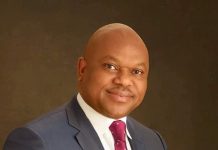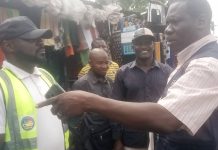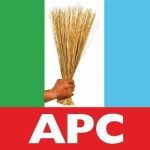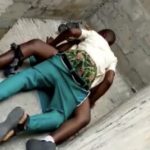BY COMRADE GLORIA OKOLUGBO
The plight of the Ndokwa/Ukuani people is a painful reminder of systemic marginalization and deliberate neglect—a grim reality that must no longer be tolerated. While Ndokwa Neku claims the mantle of the apex socio-political body representing our people, it has consistently failed to speak truth to power or advocate for the fundamental rights and welfare of the Ndokwa/Ukuani communities.
Despite being a critical oil and gas-producing region, contributing significantly to the national economy, the Ndokwa/Ukuani people live in abject poverty, surrounded by wealth that they can neither access nor benefit from. Gas flaring—a direct environmental and health hazard—continues unabated in our communities, with the flames illuminating the sky as a stark reminder of the injustice inflicted upon our land.
The Okpai power generation plant, with a capacity of 980 MW, stands as a symbol of broken promises. Once hailed as a beacon of development and hope for our people, it now operates as an isolated fortress, guarded by high security and serving the Federal Capital Territory (FCT) and neighboring states while the host communities languish in perpetual darkness and deprivation. For over a decade, the gates of opportunity have been firmly shut against the very people whose resources sustain the plant.
This is a modern-day apartheid—a systemic economic disenfranchisement that strips our people of their dignity and denies them the basic necessities of life. It is a human rights violation that demands urgent redress at both national and international levels.
We categorically denounce the so-called leaders and associations who have betrayed their mandate to advocate for our people. These entities, too timid or too compromised by political patronage, have chosen crumbs over justice, silence over advocacy, and self-interest over collective progress. Their inability to negotiate or demand the rights of the Ndokwa/Ukuani people is a dereliction of duty that can no longer be overlooked.
In contrast, we align ourselves with the distinguished Senator Prince Ned Munir Nwoko, whose steadfast commitment to justice, development, and equity remains a beacon of hope for our people. We urge him to escalate our demands for reparative justice and ensure that the voices of the Ndokwa/Ukuani communities are heard at the highest levels of governance and beyond.
Legal and International Instruments for Redress
In seeking justice, the Ndokwa/Ukuani people can rely on various international treaties and legal instruments that Nigeria is a party to, including:
1. The African Charter on Human and Peoples’ Rights (ACHPR)
Article 21: Guarantees the right of communities to freely dispose of their natural wealth and resources and provides for reparations in cases of spoliation.
Article 24: Recognizes the right of all peoples to a general satisfactory environment favorable to their development.
2. The United Nations Declaration on the Rights of Indigenous Peoples (UNDRIP)
Article 26: Affirms the rights of indigenous peoples to the lands, territories, and resources they have traditionally owned or otherwise occupied.
Article 29: Ensures the right to the conservation and protection of the environment and the productive capacity of their lands.
3. The International Covenant on Economic, Social and Cultural Rights (ICESCR)
Article 1: Guarantees the right of peoples to self-determination, including control over their natural resources.
Article 11: Recognizes the right to an adequate standard of living, including adequate access to electricity, water, and essential services.
4. The Paris Agreement on Climate Change
Emphasizes the need for a just transition to renewable energy sources and the protection of vulnerable communities from the adverse effects of climate change and environmental degradation.
5. The Universal Declaration of Human Rights (UDHR)
Article 25: Affirms the right to a standard of living adequate for health and well-being, including housing, food, and access to basic services like electricity.
A Call to Action
We call upon all sons and daughters of Ndokwa/Ukuani to rise from the shadows of marginalization and reclaim their rightful place. We must reject the narrative of a conquered people and stand united in pursuit of justice, equity, and development. This is a battle that transcends politics; it is a moral imperative and a collective responsibility.
Together, we shall escalate these issues to the appropriate national and international bodies, holding Nigeria accountable for the treaties it has ratified and the promises it has made to its citizens. Reparative justice is not a favor—it is a right, and we will not rest until it is secured for the Ndokwa/Ukuani people.
Let this be a turning point—a moment when we refuse to be silent, when we refuse to be ignored, and when we demand what is rightfully ours: dignity, development, and a future that reflects the wealth of our land and the resilience of our spirit















